Pro cycling needs to learn from Formula 1: Let's see bikes designed just for pros
New bikes every few years will mix things up, and trickle down tech will benefit us all

Cycling is a pretty archaic sport. The bicycle itself has been around since the 1800s, allowing for a bit of leeway with what ‘bicycle’ describes. The UCI does its best, mostly through heavy-handed banning of things out of the ordinary, to keep the evolution of the racing bicycle at a Darwinian pace.
With such slow changes to the rules governing the form of the racing bicycle, it probably hasn’t escaped your notice that the majority of aero bikes in recent years all look near-identical. Recent relaxation in the rules on tube depth has created some divergence, but given enough time, wind tunnel testing, and computational fluid dynamics it’s not beyond the realms of possibility that we could see this latest crop of one-race-bike bikes coalesce around a final form.

While I doubt that this is a proposal that the UCI will countenance for a second, I think there’s a lot we could gain, both as a sport and as consumers, if the WorldTour peloton raced on a class of bikes that don’t have to be commercially available. A Formula 1 style, top tier of machines, with rules governing their form changing every few years.
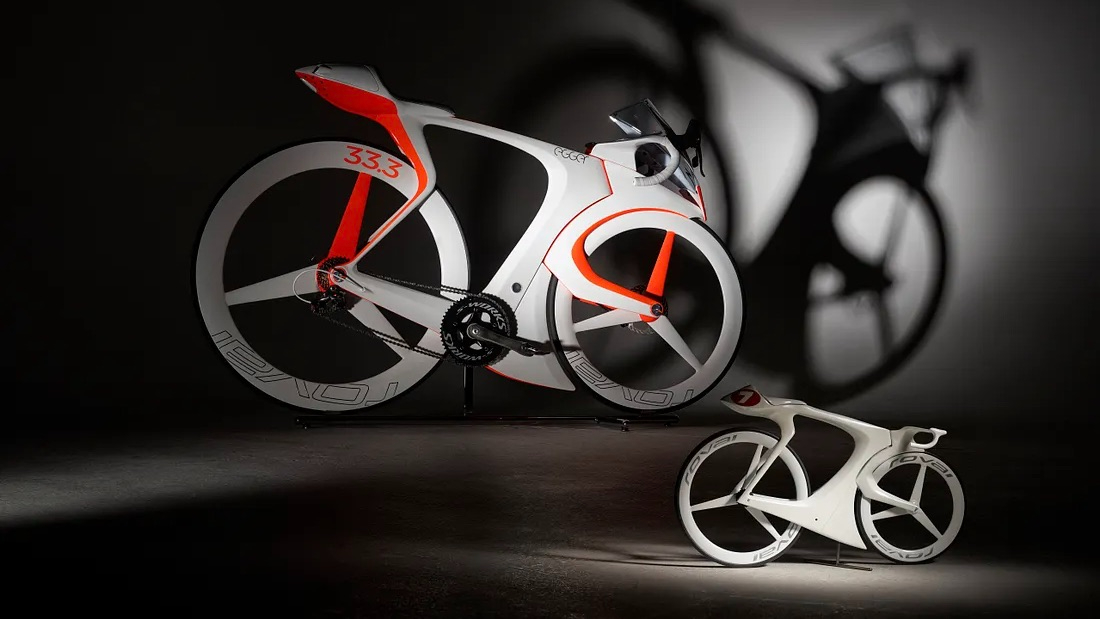
The Formula 1 system
Every year the technical regulations governing Formula 1 cars change, and every year there is a media frenzy around how the teams are going to adapt their machines to comply with the regulations. There are endless YouTube videos from armchair engineers all the way through to coverage in the sports pages of national newspapers. More infrequently there are major changes, new engine requirements and the like, that stir the pot and drive innovation.
To many people, myself included it must be said, the racing in Formula 1 is a little dull, but the constant technical churn is fascinating.
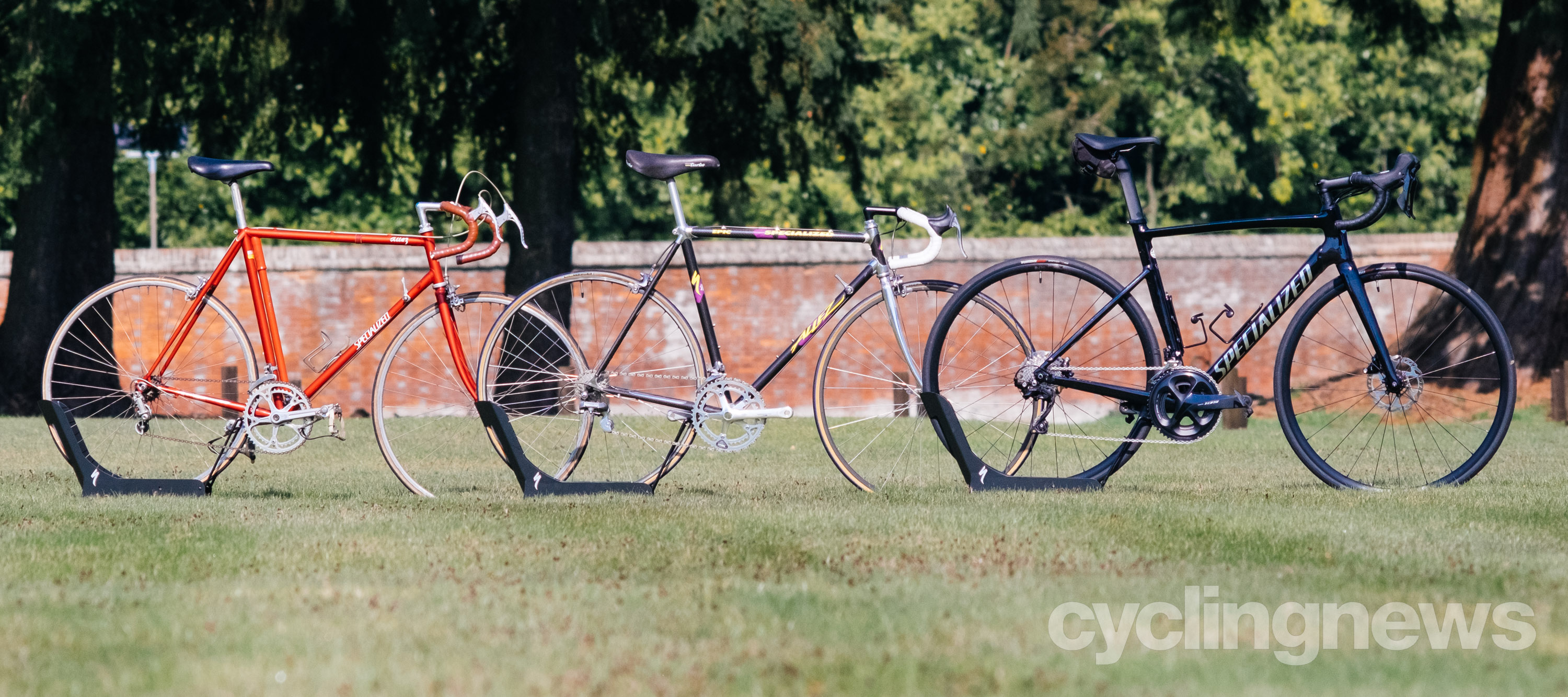
It would be cool
This is perhaps the most major selling point - It’d just be really cool to see. Motorsport fans lust after the machines confined to the upper echelons of the sport, likely in a way they wouldn’t if they could, with enough cash, also drive the very same machines to the supermarket to pick up eggs and milk.
Sailors, too, look on in awe at the machines of the Americas Cup, and the fact that they will likely never helm a carbon fibre hulled, solid sailed, hydrofoil equipped boat doesn’t diminish the enjoyment they get from either watching the racing, or sailing their own boats.
Get The Leadout Newsletter
The latest race content, interviews, features, reviews and expert buying guides, direct to your inbox!
I’ve not got any concrete suggestions as to how different WorldTour bikes could be, but if you look at Triathlon, not governed by the UCI, the bikes are pretty outlandish.
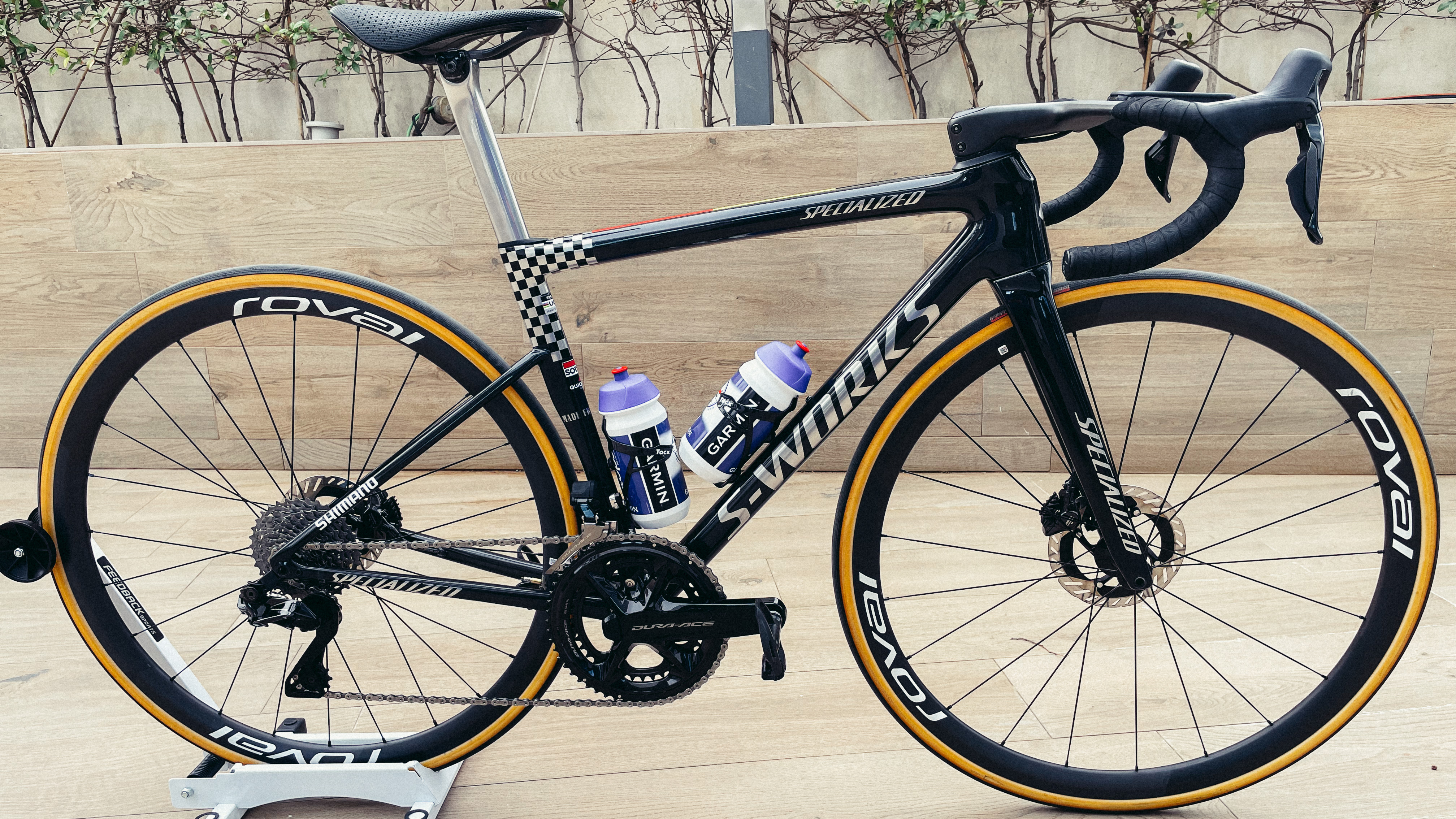
It would stop us all feeling like we need a top-tier race bike
Top-tier cycling is already inaccessible. The cost of a Tour de France bike can easily exceed £15,000, with time trial machines costing substantially more. On the track, where race-winning margins are frequently measured in hundredths of a second, the bikes ridden by the professionals are effectively only available to national federations, such is the financial barrier to entry. Filippo Ganna’s hour record bike cost €75,000 for example, and it’s not uncommon to see ‘price on request’ for the slew of 3D printed titanium parts used at the Olympic Games.
If we cordoned off the WorldTour machines it would free up manufacturers to focus more R&D into producing a smaller number of bikes. Instead of developing road bikes that conform to the UCI regulations, are fast enough to win races, but are also compliant and handle sufficiently well for consumers, brands could separate these streams, producing race bikes for the pros, and consumer bikes for consumers.
Not only would consumer bikes improve as a result, but we would also see less of the ever-more-marginal gains promoted to the general public. To call out one in particular, because it stuck in my mind, do we really think the claim that the new Specialized Roubaix is 17 seconds faster over 100 miles is of any tangible benefit to consumers?
Tell us that Jonas Vingegaard’s new Cervelo is 17 seconds faster over a stage and I’m interested; that’s a potential stage-winning margin, but we don’t need such marginal gains on the Sunday club run.
Having pro bikes available for purchase does, to some degree, make people buy more stuff because they feel they have to keep up. This is of course good for the industry in general, but I suspect that using unavailable bikes as marketing would work just as well. Ferrari is still in business, as are Mercedes, McLaren, Honda…

It’d make racing more popular
I loved watching rallying when I was a kid, but there’s no denying that F1 is more popular than the WRC. I believe a pro-tier class of machines would increase interest in the sport, and keep fans engaged.
From a personal point of view it would also make my job a lot easier, but that’s besides the point.
Pinnacle machines drive interest. Formula one, the Americas Cup, MotoGP, Nascar: All more popular than the lower classes in their respective fields. I’m not suggesting this is simply down to the machines themselves, but if there was no Formula 1, and the top tier of motor racing was sports cars (the closest analogy to my mind, as the fastest commercially available machines), I don’t think it’d be as popular.
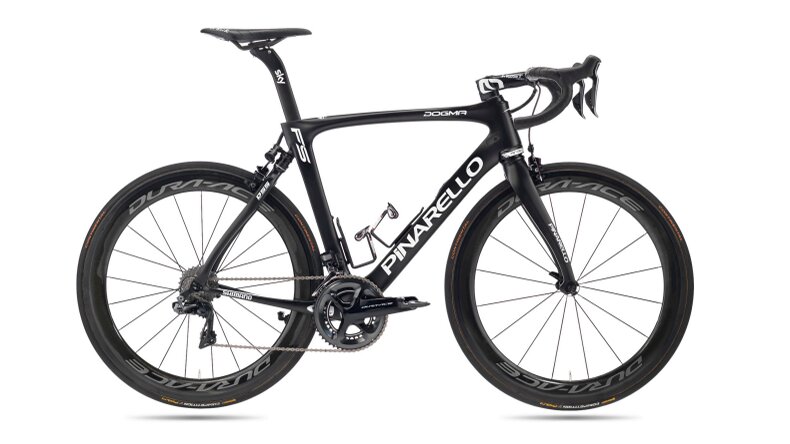
Trickle down tech
If you google ‘F1 technology in road cars’ as I did, you will find a list of things that most motorists take for granted in their family hatchback. Active suspension, disc brakes, turbo chargers, traction control, the rear view mirror, buttons on the steering wheel, gear shift paddles… Even carbon fibre and less tangible things like aerodynamics were first pioneered in machines reserved for professional drivers, but trickled down to the rest of us in due course, once the kinks had been ironed out.
What we have instead is that every time an innovation is released to the pros, it’s also released to consumers. Who among us is still running oval rings? Who among us is still running oval rings from the second time they were released as an innovation (yes, the first one was BioPace - Gotcha!).
Pinarello no longer has a full suspension road bike, Bianchi has no front suspension. Zerts are gone. The IsoSpeed decoupler has gone, and who’s to say how long the IsoSpeed hole will stick around for. It’s not road, but it’s hard to pass over the opportunity to mention Canyon’s Hoverbar here too.
All of these innovations can be tried out with far lower potential impact to the consumer if they are partitioned away. It’s a better place to test them, and the innovations that are actually beneficial will make their way through to the rest of us in due course.
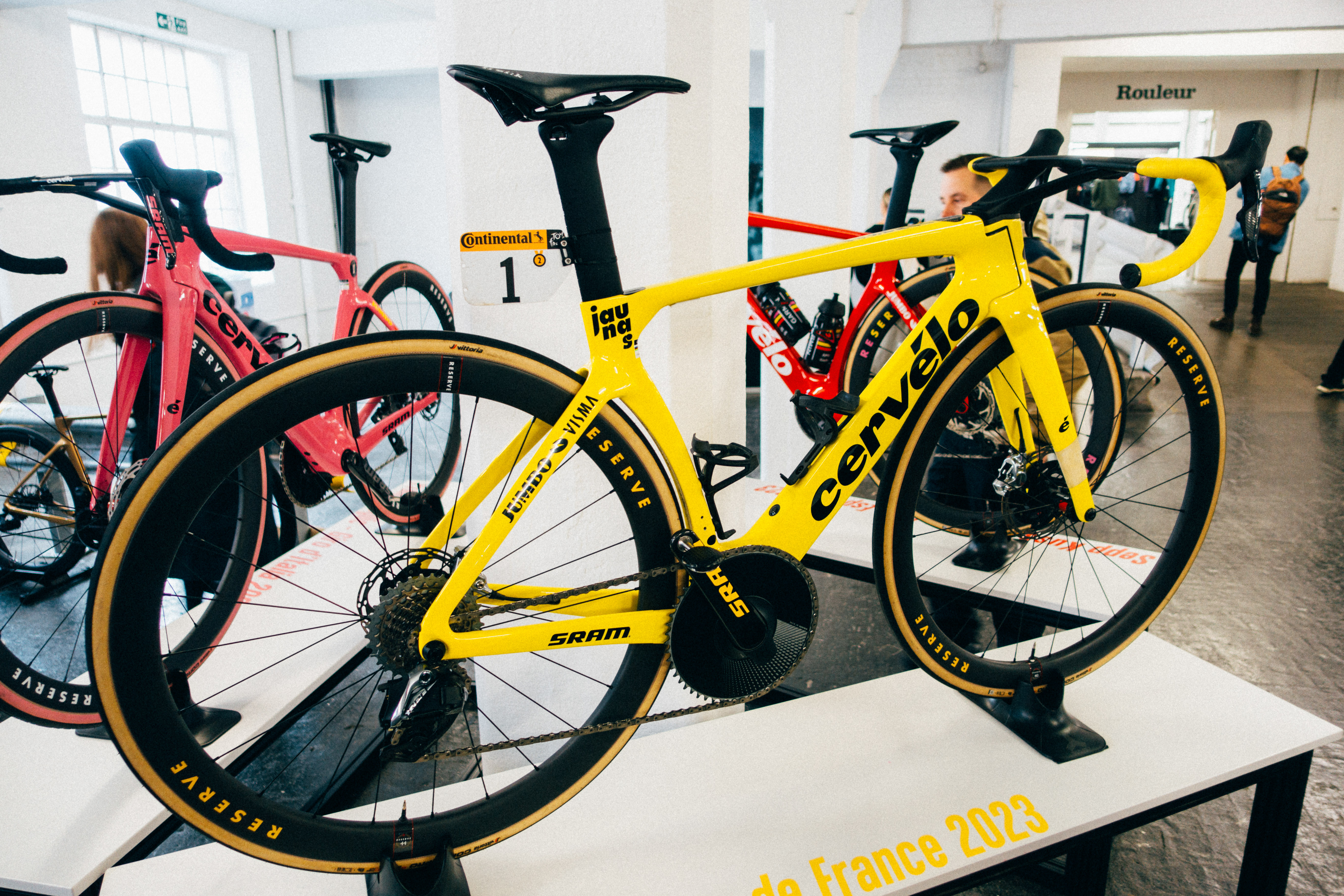
It could shake up team dominance
“Well, it’s just whoever has the fastest car that wins!” is an accusation I level at my friends who watch F1. I am always swiftly assured that Verstappen/Hamilton or whoever is the dominant driver of the day would still win in a slower car.
The team dominance in F1 does seem entrenched. Red Bull have been winning for years, but Mercedes (or McLaren, I’m never totally sure which it is), were dominant before that. Every time there’s a major rule change there is a mixing up of the status quo, which is only a benefit to fans of the sport, and to maintaining an audience.
It could also, it must be said, further entrench a team’s dominant position, so budget caps would need to be set and enforced.
It could improve interest in lower tied and domestic racing
I think the success of race series like the British Touring Car Championship is down to the fact that the cars being raced are essentially the same as the ones you’d do the school run in, or the weekly shop.
Yes, this is what bike racing as a whole has going for it, but I think if the pros had a separate class of bikes it would also give people more reason to watch lower tier and domestic racing, which could easily be raced on consumer models.
You watch F1 on the telly because fast car go zoom, and it's so incredibly beyond the realm of normal that it's exciting. Equally, you go to a BTCC race in person because you’ve imagined yourself clipping the apex of a roundabout in your Volvo.

Will joined the Cyclingnews team as a reviews writer in 2022, having previously written for Cyclist, BikeRadar and Advntr. He’s tried his hand at most cycling disciplines, from the standard mix of road, gravel, and mountain bike, to the more unusual like bike polo and tracklocross. He’s made his own bike frames, covered tech news from the biggest races on the planet, and published countless premium galleries thanks to his excellent photographic eye. Also, given he doesn’t ever ride indoors he’s become a real expert on foul-weather riding gear. His collection of bikes is a real smorgasbord, with everything from vintage-style steel tourers through to superlight flat bar hill climb machines.